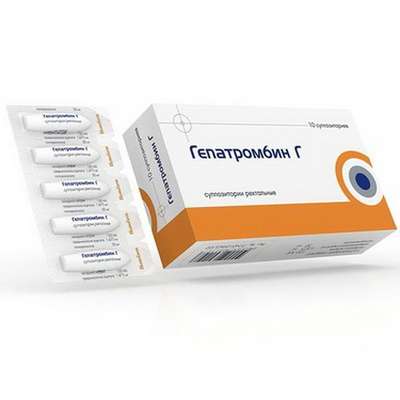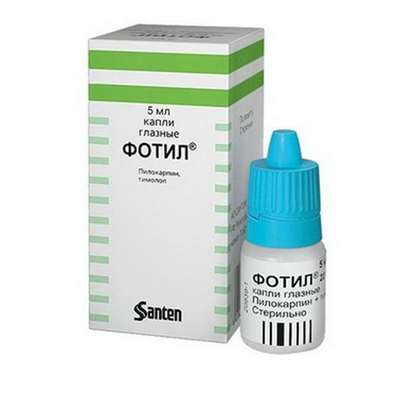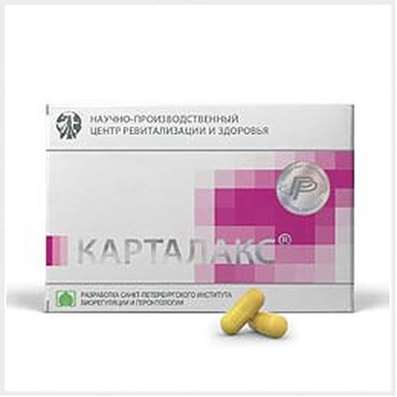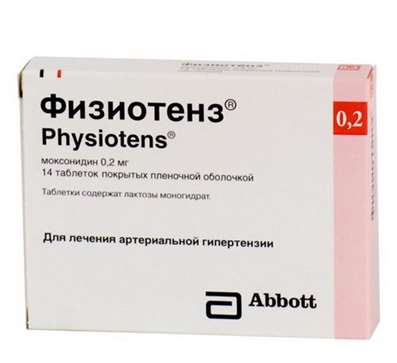Evidence-based medicine and principles of drug development
25 Oct 2016
How today investigated the efficacy and safety of new drugs.
But can it? - Raise the question of the right of a doctor to treat? If you think so, if in doubt in every scientific method adopted today whether he will later discredited or rejected - then it is possible God knows what a walk! After the deaths described even aspirin: the man took his first in the life of aspirin and died .. Then treat the general can not be! Then do not be to bring everyday benefits.
Evidence-based medicine is a new concept of medicine, which is based on the fact that the adoption of specific decisions regarding patient treatment should be based on clear evidence of efficacy and safety of existing treatments, obtained in clinical trials. Today, evidence-based medicine is the motor of improvement of clinical practice in the West, it has been implemented in all areas of medical activity - from the principles of communication with patients to diagnostic strategies and proper treatment.
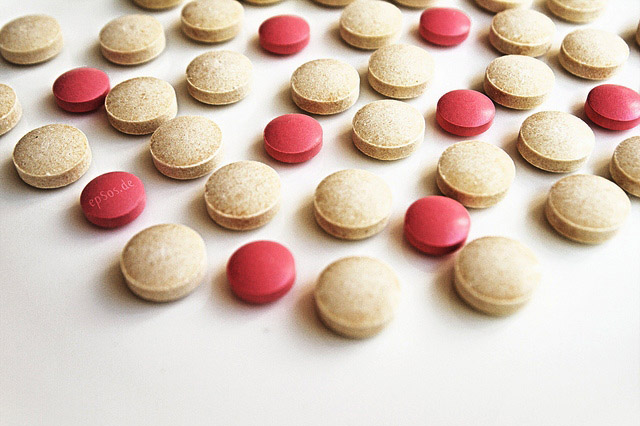
One of the founders of the evidence-based medicine was Professor Archie Cochrane, who is still in the middle of the XX century began to think about how really effective then known methods of treatment of infectious diseases. The fact is that, when we give the patient some medicine becomes better and it is not always associated with the action of the drug per se. About a third of the cases its effect is determined by the "miraculous" power of placebo. Placebo, by the way, has always been widely used in medicine. So, the great physician wise to use "gold", "silver" and "simple" powders - though containing chalk, but very effective. In fact, one of the modern types of placebo therapy is homeopathy. But, of course, authenticated in the serious study drugs are much more effective.
The methodology is based on evidence-based medicine in clinical trials, which are being built for a specific design. One of the key principles of evidence-based medicine is a "double-blind": the patient signs an informed consent, which states that he can get any drug or placebo, and the doctor does not know which group will be randomized each included in this study patients. This is actually in the placebo role often serves no "Dummy" and the conventional treatment, which is compared to a new one. The Ethics Committee will never allow the use of the placebo "empty" in the case where the treatment of the disease has already developed.
Maps are opened only after the patients in both groups completed the full course of treatment. The next step is the statistical processing. It was only through the use of clear criteria and statistical analysis of a large number of observations can be shown that a new drug is effective. Interestingly, the Student criterion widely used to determine whether a drug works, was coined by William Gosset, cares about how not to overdo it with the yeast at the famous brewery Guinness. Another criterion was proposed by Fischer, think about how many cups of tea with milk should be tested to see if it does not deceive the lady assured us in small talk that she is able to distinguish that the first poured into a cup - milk or tea. What would you think of these math and find out what their criteria are then used in matters of life and death?
The methodology of evidence-based medicine is often criticized from various positions, but we have no other tools to assess the real effectiveness and safety of treatment.
Now consider the situation from the perspective of someone who has come to the pharmacy for OTC drug. How can he distinguish products that have passed such clinical trials? Here it is necessary to consider the following.
Today Pharmacology goes two ways: the first way - is the release of the so-called dietary supplements, which do not pass clinical trials, and as a rule, most of them are not working. As a practitioner, I find it hard to answer why they are in the pharmacy. Case study - it started with good intentions multivitamin. One of the central dogma of modern medicine is that if the body of something very important is missing, and you bring it from the outside, not always it can raise the level of health.
Meldonium is not Placebo, it is proved to be a working drug.
Research Mass, which were published in the most prestigious magazines (such as Circulation, New England Journal Of Medicine, etc.), have shown that long-term use of multivitamins, not only does not improve the prognosis for life, but also, probably due to the risk of growth of heart attacks and certain types of cancer, particularly lung cancer. But the people, for unknown reasons, many doctors continue to buy them. There appears another paradox of medicine: if you subjectively feel better "from the drug," as from a multivitamin - "fresh", it does not mean that the drug actually improves some parameters in the body, and that the more you end up to prevent the development of disease .
And the second path - is the production of large pharmaceutical companies of drugs developed serious research teams. They are licensed at different levels and are a serious clinical trials. About how one can be trusted, you should know your doctor: data about the real effectiveness of virtually every "pill" can be found in specialized medical search engines.
So, coming to the pharmacy, you see a lot of drugs, and you may feel that they can cure most diseases. It is interesting that in fact has recently been created not so much really effective medicines.
In order to develop effective drug started should be a combination of several factors:
- Socially significant diseases;
- Known molecular mechanisms of its development;
- Material capabilities to create drugs, including appropriate model and biological synthesis methods that can be used on an industrial scale.
It should be understood that even a very effective drug would not proceed if it finds a convenient dosage form. Apo A1 Milano - peptide preparation, only a few of which are capable of intravenous injections significantly reduce the size of atherosclerotic plaques in the coronary arteries (according to precision intravascular ultrasound). A similar effect can be achieved by taking a standard lipid-lowering drugs for many years and in high doses. This drug may not enter the market, not only because of the high cost, but also because of the inability to make a form for application per os. Other prominent examples - and Immuno-liposomes and the dendrite cell vaccine against tumor antigens, which are extremely difficult to manufacture and practical use.
There are several concepts of creation of medicines. The first is the development of so-called individualized (personalized) treatment. Let us examine this process in the most vivid example of orphan drugs - exclusive agents for the treatment of rare diseases. They begin to create, when a scientist realizes that the biochemical or genetic defect that is associated with the disease, simply to compensate for or when suffering small group of patients is too strong, prompting their relatives or supporters to invest in the development of treatment agents that are unlikely to ever will pay dividends, but to save lives. Then it is going to a group of researchers, and they develop a sighting medicine that has exactly one single target. Generally, the synthesis is either a substance that substitutes for some deficiency in the body of the sick, or the creation of a molecule that interacts with a receptor infected determining the course of the disease. If the disease is implemented through a number of mechanisms, as is the case, for example, heart disease, orphaned drug is almost impossible to creat.
After determining the target is searched those compounds that bind to receptor necessary or designed molecule, replacement something missing in the body, and its delivery system. Some of these processes are simulated on a computer, further perform the directed synthesis chemists, and after that on specific models tested the affinity molecule to the receptor of interest to us. Then, it is determined whether it can work at the cellular level and biological models, with which usually serve as rodents. The effect of the use of orphan drugs can be seen quite quickly. We can see this in the example of hereditary kids of diseases associated with a lack of certain enzymes in the liver. If we give this medication to a child who would have died without it in 100% of cases, and the baby survives, it is absolute proof of effectiveness. Such drugs designed for the treatment of rare cancers, blood diseases, and multiple sclerosis.
Fundamentally different situation in the treatment of chronic diseases such as hypertension, heart failure, diabetes, chronic obstructive pulmonary disease. Such funds are accepted for decades, and their impact on the risk of death is difficult to track. The main difficulty lies in the fact that when a researcher holding a molecule (for example Meldonium) that works great on some models and even a few patients, extremely difficult to know whether it will work in 10 years to another patient population. And when scientists are studying this molecule, which is, for example, reduces blood glucose levels in diabetic patients, they are usually interested in how to get funding to continue their research.
Another danger lies in the species-specificity of drugs. Recently a lot of molecules have been created, "working" only in rodents, but not in rabbits, pigs and dogs. Getting funds to continue their research, if the knowledge that the drug will not be effective in the treatment of humans, medical science is at a standstill.
Developed and efficiency showed "in vitro" molecule located on preclinical trials, the first phase is then tested, in particular, in healthy volunteers. The original molecules are usually developed by small teams of researchers, but the rights they do not belong to scientists and doctors, and most others, for which the main purpose is often a promising molecule for sale a large pharmaceutical company as expensive as possible. Even in the West, the academic circle is very narrow, so the molecule-esteem can be glossed over and peppered with positive feedback, and therefore the risk of large companies to buy a pig in a poke. Failure to cure certainly fail at the crucial third phase of clinical trials, which are conducted on thousands of patients and led by indisputable scientific opinion leaders. Thus, a drug that lowers excellent blood glucose can not be prevented while the development of fatal complications of diabetes compared to used with Metformin in mid XX century. In the past few years a large number of "innovative" drugs are abundant on the shelves of pharmacies, not shown in clinical trials statistically significant superiority over placebo or standard treatment.
The inclusion of the principles of evidence-based medicine in the backbone of clinical research protocols enabled dramatically improve the safety of drugs in the long term. As an illustration, there are antiarrhythmics of Ic group. These funds are perfectly tolerated and remove the most severe arrhythmias. Quality of life in patients taking these drugs is increased. Therefore, the sudden death of patients taking antiarrhythmics class of Ic, doctors associated with arrhythmia, about which treated patients. And it seemed that these funds are ideal to complete major studies. But statistical analysis showed a sharp increase in mortality associated with long-term use of antiarrhythmic agents have investigated certain categories of patients. No other method except blind research, would not have allowed to determine the cause of sudden death in patients who receive treatment relieved symptoms.
With regard to the "dangerous" antiarrhythmic drugs, they were not discounted, and studied more deeply and subsequently found such a situation, when these drugs may be useful and safe (in particular, when cardioversion).
Evidence-based medicine today is opposed to such an approach, as a talented medical care, that is exactly matched individualized treatment "is not on the recommendations." Some studies have shown that under certain rare diseases receive talented medical care patients live slightly longer than those who were treated strictly according to clinical guidelines. In our reality, this approach can be extremely dangerous due to the fact that today in Russia only a few specialists have the appropriate for talented medical care knowledge and experience. Unfortunately, a common treatment today based on "many years of personal experience" has nothing to do with individualized treatment. Whatever may have been a highly qualified specialist doctor, he is confronted with a specific group of patients and hones a limited set of methods. Even very well-wielding method of treatment A doctor should critically review the treatment strategy after the publication of a major study that clearly shows that the technique B is superior to A significantly on the effectiveness and safety.
Today some of the most sought-after specialists in the field of drug development - are the ones who engage in so-called translational medicine, ie, people who saw the very first test phase, can predict the fate of drugs and suggest new experiments to clarify the risks and benefits (in possible without the involvement of patients!). But such experts, particularly unattached, is very small. It is because specialists error translational medicine or because they simply have not been involved, often only in the final third phase of clinical trials is that the drug, which showed excellent results in the early stages, in reality, "not working". The pharmaceutical company spending on research for many years and tens of millions of dollars, but at the last line understands that the drug can not be used. And therefore, those drugs that still managed to bring to the market, so expensive: the expense of sales necessary to cover the losses, "the casino to create new molecules."
One of the most important aspects here - this, of course, the question of humanism: developing new drugs, researchers need to "keep in mind" the clinical picture of a specific disease or images of people suffering from them. And in the case of socially significant diseases already in the early stages of thinking about how to make treatment available to the general public.
The question is how to harmonize the system and to make effective treatment more affordable, extremely complex. The first - is the search for new approaches and new molecular "targets". But the problem is that the new high-molecule are often created in small groups. Understand which of them actually deserve attention, it is difficult: too many rogues. Finally, in the world today are very few experts who can separate the wheat from the chaff. Search within these small groups of those that produce really innovative, effective product - it is now a key, underlying problem. It is important not to be deceived in the very beginning.
Note Bene: The effectiveness of homeopathic medicines to date has not been proved in any of the placebo-controlled, randomized study. Researchers who prize of $ 1 million will be able to scientifically prove its effectiveness, James Randi Educational Foundation will be presented.

 Cart
Cart

